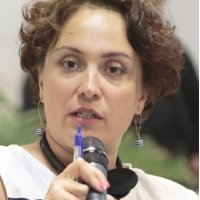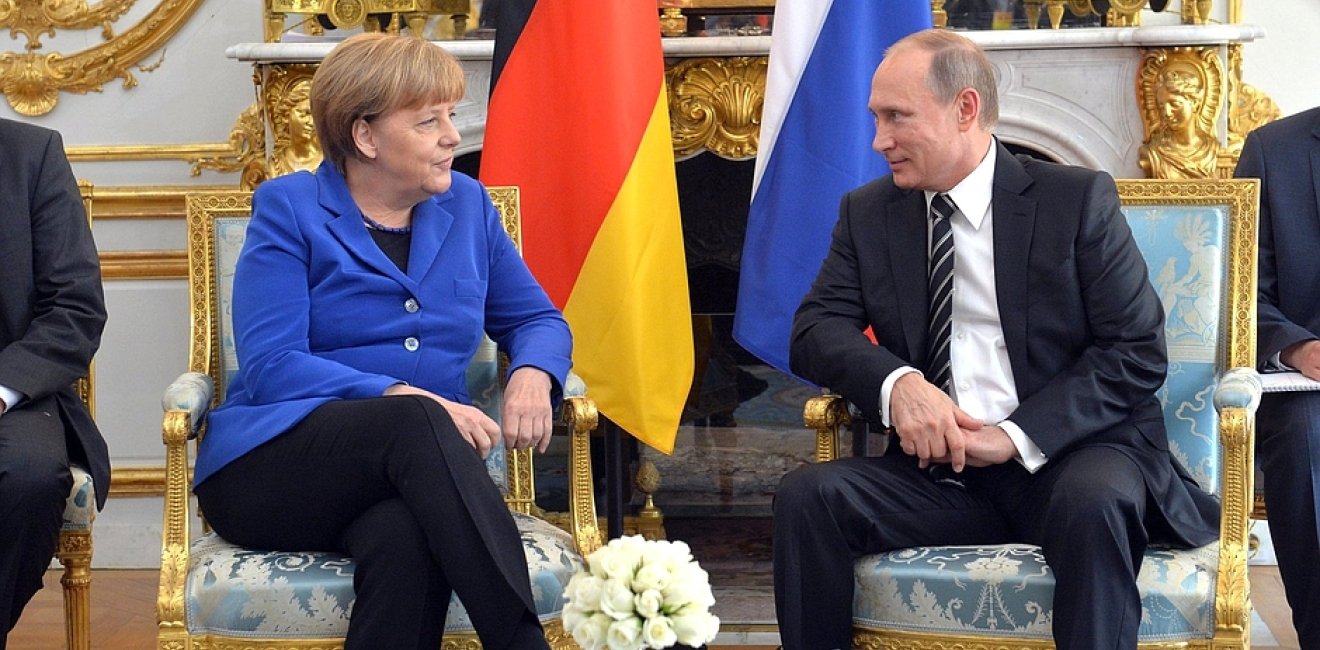
A blog of the Kennan Institute
Perception of Russia in the EU and German foreign policy concepts
The architecture of the EU’s foreign policy relations and domestic agenda of its member states have been undergoing some serious changes. The European system of checks and balances has become unbalanced and no longer functions properly. Seventy years after the end of World War II, Europe is once again a continent on which military conflicts occur, borders are redrawn, and the number of people seeking refuge and safety is greater than in the decades during and after World War II.
The institutional unity of the EU is at risk, as member states are divided in their attitudes toward two of the EU’s neighbors, Russia and Turkey. The EU and its member states are forced to reconsider their political agenda and pay special attention to security, cooperation, the balance of power, and counteracting foreign and domestic threats. The new foreign policy strategy of the EU, “Shared Vision, Common Action: A Stronger Europe,” is the result of this political revision. So also is the transformation of Germany’s military doctrine, set in the 2016 White Paper on German Security Policy and the Future of the Bundeswehr, the first time in ten years that has happened. Both documents referenced here were published in the summer of 2016 and devote considerable attention to Russia, as the challenges originating with Russia require the European states to join forces and resources to preserve Europe’s unity and security.
Russia through the prism of the EU’s foreign policy
The wording of the 60-page global strategy document resulting from the EU’s ambassadorial conference and outlining the foreign policy strategy and the security policy of the EU is very general. However, the subsection titled “The European Security Order” is clear and specific, and does not leave space for alternative interpretations of EU-Russian relations. Relations with Russia pose a “key strategic challenge” for the 28 member states, and ensuring a consistent and well-coordinated unified approach to Russia is a complex foreign policy task for the EU.
Russia is mentioned nine times in the strategy document (whereas Syria is mentioned four times, Libya four times, and Ukraine twice) and is considered a “strategic challenge” to security by the EU not so much because of “Russia’s violation of international law and the destabilisation of Ukraine” as because of Russia’s threat to European “security at home.” The EU’s Global Strategy for European Foreign and Security Policy 2016 is primarily oriented toward peace and security guarantees for its citizens and territory and only indirectly toward maintaining peace in neighboring regions.
This means that any actions of the EU to maintain the security of other countries, including Eastern European states, are possible, but only in the context of maintaining security at home, that is, strengthening the security of the EU. The Global Strategy 2016 urges “principled pragmatism” in all EU actions and initiatives. As Maksym Khylko, chairman of the board of the East European Security Research Initiative Foundation, rightly notes, “when requesting assistance or proposing cooperation in security and defence spheres, the non-member Eastern European countries, including Ukraine, should be ready to clearly substantiate advantages of such steps for the Union’s own security.”
Russia remains an important partner of rather than opponent to the EU on issues where their interests are interdependent and overlap, such as climate change, maritime security, Arctic research and preservation, education, and business and academic connections. The EU obviously hopes as well that Russia will not violate the priorities outlined in the Global Strategy 2016 related to stability in Eastern Europe. The EU expects that Russia will pursue a foreign policy in accordance with the 1975 Helsinki Final Act and the 2001 Paris Charter and that Russia will maintain the stability of state institutions in EU countries and will respect their right to freely determine their level of engagement in the European integration project.
These perhaps unwarranted expectations suggest that the EU lacks a clear grasp of recent events in the international arena, a point emphasized by the High Representative of the European Union for Foreign Affairs and Security Policy, Federica Mogherini, when she said that this is “no time for uncertainty” and that there is a need to bring clarity to foreign and security policy.
Russia through the prism of German foreign policy
Over the past few years, experts have assessed the eastern direction of Germany’s foreign policy as “balancing stability and democracy in a ring of fire” while not providing an answer to the question of who lit this fire and who keeps it burning. The White Paper 2016 issued by Germany’s Federal Ministry of Defense outlines Germany’s military policy and summarizes domestic and external threats to the country’s security, and in doing so answers questions about the ring of fire.
The white paper straightforwardly states that “Russia is openly calling the European peace order into question,” which “has far-reaching implications for security in Europe and thus for the security of Germany.” The authors believe the crisis in Ukraine to have been initiated by Russia and see it as “the concrete manifestation of long-term internal and external developments” in relations between Russia and the West. Interestingly, the white paper was published a few days after the EU’s Global Strategy for European Foreign and Security Policy 2016 was published, but the careful wording and interpretations of the Brussels officials in the latter document did not find support among the authors of the German military doctrine.
The authors of the Defense Ministry’s White Paper 2016 are convinced that Russia today is “placing an emphasis on strategic rivalry” and “presenting itself as an independent power center with global ambitions.” The report continues, “Without a fundamental change in policy, Russia will constitute a challenge to the security of our continent in the foreseeable future.” The 143-page document, which lists domestic and foreign threats to Germany, mentions Russia 15 times (China is mentioned three times, Ukraine six times, migration 13 times, and terrorism 15 times).
In late August 2016, the German foreign minister Frank-Walter Steinmeier characterized the attitude of Germany toward Russia as follows: “Russia is a central actor in what is happening in Syria and Ukraine,” and although dialogue with Russia is currently difficult, “the key to resolving [crisis situations]” and returning to the G8 format is in Moscow.
The authors of the German military doctrine are also familiar with the “principled pragmatism” that is part of the EU’s Global Strategy. They are also convinced that Germany has a special role to play in Russia-NATO relations by means of “credible deterrence and defence capability as well as a willingness to engage in dialogue and attempts at cooperative security.” Moreover, the authors insist on the need for dialogue and consultation with Russia, as Greater Europe, Germany, and Russia are joined together by a wide spectrum of mutual interests, and maintaining a credible deterrence capability is the best way to minimize threats.
Germany does not aim for “the development of a new security architecture.” Rather, its task is to ensure “respect for and consistent adherence to existing and proven common rules.” Hence the following forms of contact with Russia are the ones that should be the focus of greatest attention: interaction within the regional security system (the OSCE), E3+3 negotiations on Iran’s nuclear program (Germany, France, the UK, the United States, China, and Russia), talks on the Ukraine crisis in the Normandy format (Germany, France, Ukraine, and Russia), and ad hoc consultations.
The German vision of Russia should be assessed through the prism of the political elite’s vision, and the political elite is currently searching for an optimal balance between, on the one hand, keeping a distance from Russia until the Minsk agreements for resolving the conflict in Crimea are implemented, and establishing control over the weapons trade in Europe so as not to be drawn into a new arms race with Russia, and, on the other, “maintaining a dialogue with Russia for optimal threat prevention.”
In late August 2016, the German foreign minister Frank-Walter Steinmeier characterized the attitude of Germany toward Russia as follows: “Russia is a central actor in what is happening in Syria and Ukraine,” and although dialogue with Russia is currently difficult, “the key to resolving [crisis situations]” and returning to the G8 format is in Moscow.
Over the past few decades, European countries have with different degrees of success pursued either a policy of containing Russia (the UK), or a policy of engaging Russia (Germany), or, with mixed success, a combination of the two, depending on geographic, political, and economic interests (Czech Republic, Slovakia). In a changing world where nuances in political decision-making erode the European political landscape, only time can answer the question of what coalitions will form on the European continent susceptible to conflict. However, time, in the short and long view, is frozen in uncertainty. The single policy line currently pursued by the EU and its member states toward Russia is short-lived, simply because neither the EU nor Germany—the heart and engine of a united Europe—understands what kind of relationship to construct with Russia in the long run, and how.
The opinions expressed here are solely those of the author.
Author

Founder & CEO of the RUSMPI – Institute on Migration Policy

Kennan Institute
After more than 50 years as a vital part of the Wilson Center legacy, the Kennan Institute has become an independent think tank. You can find the current website for the Kennan Institute at kennaninstitute.org. Please look for future announcements about partnership activities between the Wilson Center and the Kennan Institute at Wilson Center Press Room. The Wilson Center is proud of its historic connection to the Kennan Institute and looks forward to supporting its activities as an independent center of knowledge. The Kennan Institute is committed to improving American understanding of Russia, Ukraine, Central Asia, the South Caucasus, and the surrounding region through research and exchange. Read more

Explore More in The Russia File
Browse The Russia File
Chechnya as a Model of Modern Russia

Russia’s Indigenous Communities and the War in Ukraine

Gas and Power in a Changing US–Russia Relationship

